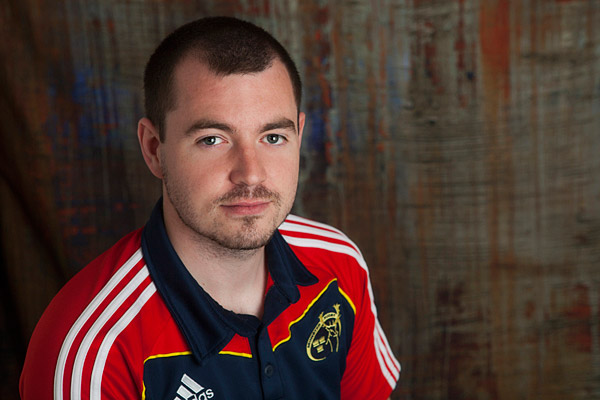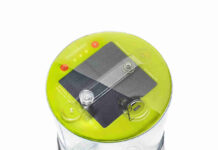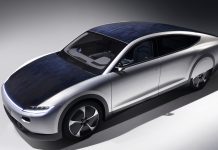
Stephen Mulligan, a University of Delaware senior studying mechanical engineering, has co-authored a paper explaining the effects of gas flow on newly developed solar cells.
The paper, entitled “Hybrid Effect of Gas Flow and Light Excitation in Carbon/Silicon Schottky Solar Cells,” appeared recently in the Journal of Materials Chemistry.
Written during Mulligan’s two-month student exchange trip to Tsinghua University in Beijing, China, last summer, the paper investigates the behavior of carbon/silicon solar cells and how the presence of gas flow results in enhanced cell efficiency. These cells could then act as improved gas flow sensors.
Using a solar simulator, Mulligan and his team shined artificial sunlight on a series of solar cells to obtain a source of power, or voltage. They then blew gas, such as nitrogen, over the solar cells and noticed that their temperature lowered. This lower temperature, in turn, increased the solar cell’s efficiency by 5-10 percent, which is “quite the jump,” according to Mulligan.
At Tsinghua University, Mulligan had the opportunity to assemble the solar cells used in tests, an important aspect to the research’s results and success.
“We were specifically working with carbon/silicon cells,” says Mulligan. “I would assemble graphene, a flat, single-layer of carbon atoms, onto a silicon wafer. The cells’ flat membrane acted as the ideal structure for the tests we were running.”
First produced in 2004, interest in graphene use has exploded in recent years. Mulligan takes pride in working with such young, up and coming science.
“Graphene and nanotubes aren’t commonly used today but will increase capability and efficiency years down the road in the industry,” says Mulligan. “It was like experimenting with new technology.”
Experiences abroad
Challenges in the lab were not Mulligan’s only obstacles. He had to adjust to working in a foreign environment where the culture was new and communication was difficult.
“The summer was definitely a culture shock. The East and West are amazingly different,” remarks Mulligan. “We sometimes got lost in translation, but it all worked out in the end.”
However, Mulligan is no stranger to international travel. Last Winter Session, he studied economics in Geneva, Switzerland, as part of his minor, but also has dual citizenship in Ireland where he spent his childhood.
“Stephen was selected as one of three, very qualified mechanical engineering students to implement into the Undergraduate Student Exchange Program in Beijing last summer,” notes Wei. “He is an avid world traveler and truly enjoys exploring and surrounding himself in new cultural environments.”
With graduation approaching in May, Mulligan plans on starting a career as soon as possible, preferably in manufacturing. He still retains interest in returning to China and is currently learning Chinese in his spare time. A return for Mulligan this summer may include additional research on nanomaterials, university enrollment, and further exploration of the Chinese language.



